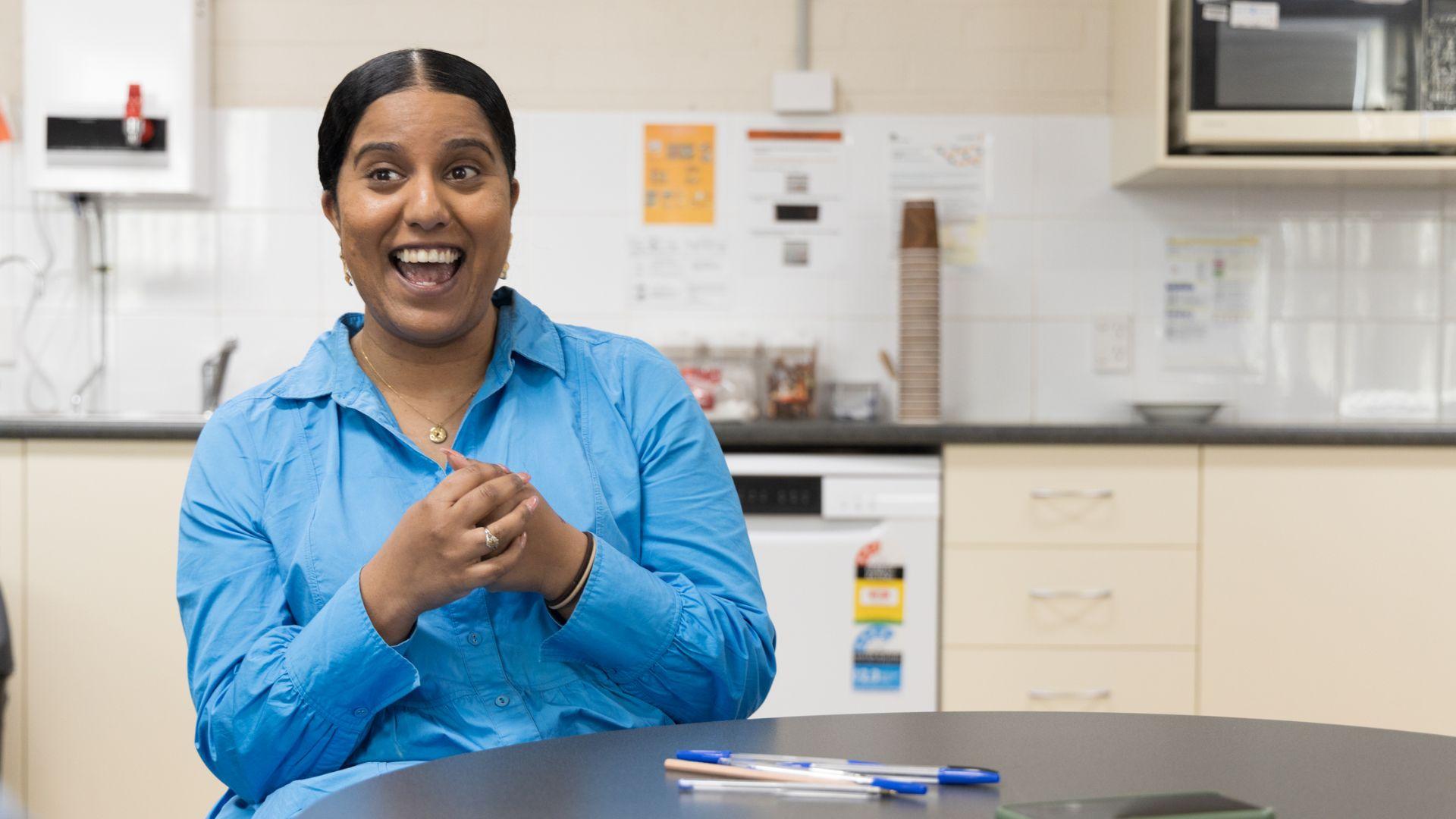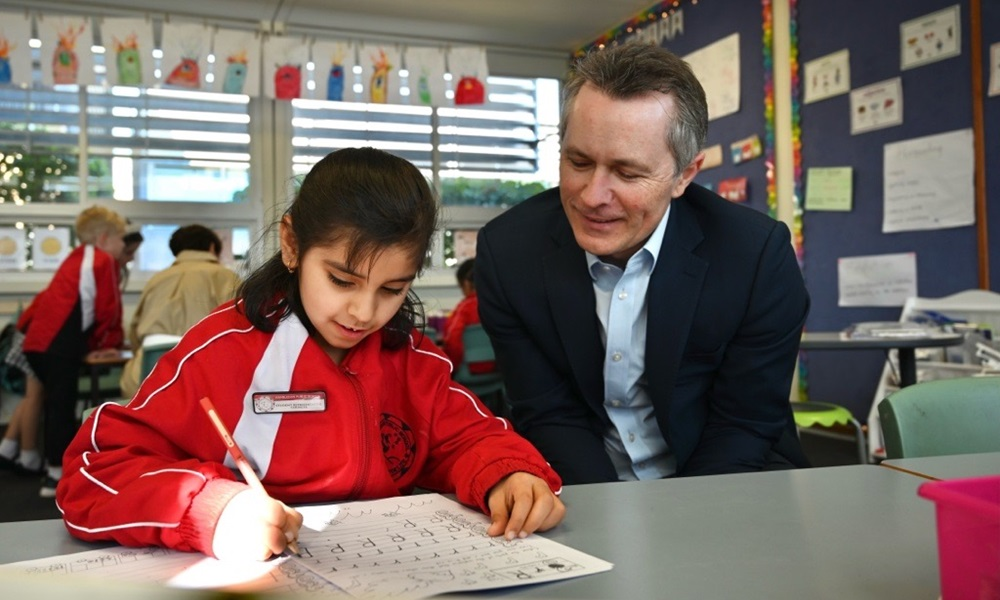In the 2 years since Federal Education Minister, the Hon Jason Clare MP launched the Strengthening Induction through Quality Teaching Rounds project, more than 800 teachers from over 200 schools in every state and territory have taken part. The evidence collected in the project to date is showing that participation in Quality Teaching Rounds has reduced burnout and improved wellbeing and professional community. It has increased teacher efficacy in general, and in the specific domains of student engagement, classroom management, and instructional strategies.

Quality Teaching Rounds is also having a positive effect on teacher retention. When asked to indicate their intention to leave the profession within the next 6 months on a scale from 0 (not at all likely) to 10 (extremely likely), the average response dropped significantly following participation in Quality Teaching Rounds. Importantly, all these positive effects are reported by both early career and more experienced teachers alike.
Putting evidence at the heart of teaching and learning at Shalvey
Chifley College, Shalvey Campus, or Shalvey, as it’s affectionately known by teachers and the community, is a year 7-10 government school in the heart of Mt Druitt on the western outskirts of Sydney. More than a third of its 400 students are Aboriginal and/or Torres Strait Islander, another third are of Pasifika background, and 84% of families are in the bottom socio-educational quartile.
Shalvey had started doing Quality Teaching Rounds in 2020, however the pandemic and ongoing teacher shortages slowed down plans to roll it out widely across the school. The Government-funded Strengthening Induction program has helped to give it momentum again.
Principal Jenny Linklater and her deputy Karen Attard sing from the same song book when it comes to what’s needed for the school and its students to succeed. What they’re doing is getting results. Shalvey is achieving ‘above’ and ‘well above’ compared to similar schools for growth in NAPLAN results.
‘When I first came to this school, I put to the teachers that I’m only interested in evidence-based practices,’ says Linklater.
‘We’re in a really disadvantaged community, intergenerationally disadvantaged. So it’s really important that we maximise our time with our students. I was already familiar with Quality Teaching Rounds, had done the training and used the framework for a long time. I’ve been pleased to see the research continue to come out and I follow the research.
‘We’re committed to Quality Teaching, it’s in our strategic plan. We’re implementing with fidelity. That means taking it slowly, working with our champions, and doing it properly.’
According to Attard, it’s a combination of programs and approaches that contribute to the culture of the school.
‘We went to what works. That’s Quality Teaching, explicit teaching, trauma-informed lesson structures. Quality Teaching Rounds complements and supports,’ says Karen.
‘Our job is to find the right balance to keep everything bubbling on top for our teachers.’
Supporting early career and experienced teachers alike
Nathan Robinson and Narmada Natkunaratnam followed vastly different pathways into the teaching profession. Today, they are ambassadors for the kind of teaching and learning culture that sets Shalvey apart.
Robinson is in his second year teaching in the school’s Support Unit, after graduating in 2024 with a Master of Education. It’s a huge accomplishment given that just a few years ago he was at a crossroads professionally.

‘I was a personal trainer for 4 years out of high school and I realised that my heart just wasn’t in it. My dad was actually the groundskeeper here and told me there was a job going as an SLSO (student learning support officer). I got it, and within the first term I was like, “I could do this. This is what I’m going to do.”’
Robinson worked as a SLSO for 5 years and as a tutor as part of the state government’s COVID tutoring scheme, all while undertaking his teaching degree.
Juggling work and university has been a challenge, but Robinson says his experience working in the school during that time has been invaluable.
‘I’ve been lucky in the roles I’ve had that I’ve got to see every aspect of this school, see different teachers teach, different ways of teaching, different kinds of kids. I wasn’t just stuck in one classroom,’ he says.
‘There’s yet to be a day where I wake up and think I don’t want to go to work.’
Natkunaratnam started her teaching career at Shalvey more than 6 years ago after completing her university’s final year placement in the English faculty. She worked casually and then on a series of temporary blocks before securing a permanent place. She’s now relieving as the Head Teacher English and coordinates the school’s roll out of Quality Teaching Rounds.

‘The staff are amazing here,’ she says. ‘Our school can be difficult at times, so you need supportive staff. But the kids are absolutely beautiful and you feel like you can make a difference here.’
‘It’s a complex, multi-layered school. If you can teach at Shalvey, you can teach anywhere. I love this school and what it represents.’
Strengthening Induction through Quality Teaching Rounds
Even as a first-year teacher, Robinson wasn’t daunted about opening up his classroom but having the QT Model as a framework brought his attention to new aspects of classroom practice.
‘A big thing at this school is the relationships with these kids. We were in a tough class [for QTR] and I thought the teacher handled it brilliantly and kept the students on task. Seeing them in different environments gave me things to take to my classrooms.’
For Natkunaratnam, getting to lead Quality Teaching Rounds is ‘another amazing opportunity’ she’s had teaching at Shalvey that she might not have had at a different school.
‘As a teacher your classroom is your bread and butter. Quality Teaching Rounds is helping us make sure we have good quality, engaging lessons. There are benefits across the classroom.’

